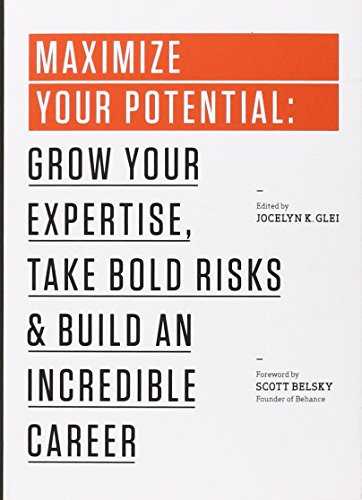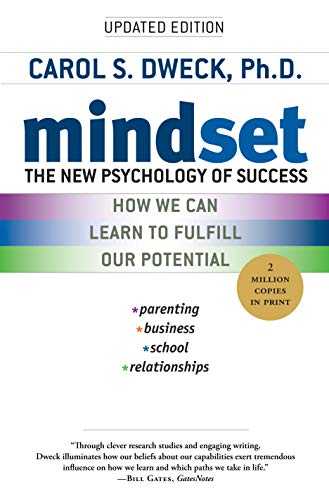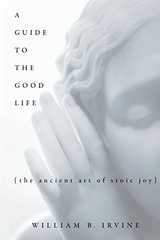
Meditations
byMarcus Aurelius
A goldmine of wisdom that has stood the test of time. Marcus Auerlius writes a series of personal notes to himself as reminders on how to live a good line. A man of great values and character, it was necessary to use logic and rational to solve life's challenging problems and not be broken down by temptation. He reminds himself to be present and not to get too attached to his emotions for they can drown our his logic. It is a defensive yet empathetic book of the struggles of man and the importance of having a philosophy to guide your greatest tool, your mind to live life to it's full potential.
Motivations to Read
A constantly recommended classic, and although I enjoyed Seneca's work I like that Marcus has a more defensive Stoic focus and write in a more open yet personal tone. Tim Ferriss has recommended the book a number of times and I continue to cultivate my stoic values this book is an essential read.
3 Reasons to Read
- Thoughts on dealing with pain and misfortune.
- Learning how to be more rational and observant of things within and outside our control.
- Stoic principles from Roman Emperor Marcus Aurelius, one of the 'good' emperors.
Notable Quotes
“You have power over your mind not outside events. Realize this, and you will find strength.” Marcus Aurelius
“The happiness of your life depends upon the quality of your thoughts.” Marcus Aurelius
“Everything we hear is an opinion, not a fact. Everything we see is a perspective, not the truth.” Marcus Aurelius
“It is not death that a man should fear, but he should fear never beginning to live.” Marcus Aurelius
“I have often wondered how it is that every man loves himself more than all the rest of men, but yet sets less value on his own opinion of himself than on the opinion of others.” Marcus Aurelius
Meditations Notes & Summary
Marcus Aurelius was a Roman Emperor from 161 to 180. He did not see himself as a philosopher but a lifelong student of it and a practitioner of Stoicism. Meditations was never intended to be published. In fact, in the first discovered manuscripts the original title was not Meditations, but the Greek phrase, Eis heauton, which means "To Himself".
The entries written, were a way for Marcus to record his own throughs and to practice and reinforce his own philosophical convictions. Some parts of the book might seem repetitive because they were personal reminders spread out over the course of his own life.
"Marcus does not offer us a means of achieving happiness, but only a means of resisting pain. The Stoicism of the Meditations is fundamentally a defensive philosophy [..] For Marcus life was a battle, and often it must have seemed - what in some sense it must always be - a losing battle."
Some questions that Meditations attempts to answer are:
- Why are we here?
- How should we live our lives?
- How can we ensure that we do what is right?
- How can we protect ourselves against the stresses and pressures of daily life?
- How should we deal with pain and misfortune?
- How can we live with the knowledge that someday we will no longer exist?
Three Disciplines in Meditations
- Perception
- Action
- Will
Everywhere, at each moment, you have the option:
- to accept this event with humility [will];
- to treat this person as he should be treated [action];
- to approach this thought with care, so that nothing irrational creeps in [perception].
Perception
"The discipline of perception requires that we maintain absolute objectivity of thought: that we see things dispassionately for what they are."
Stoic Theory of Cognition
The universal order is wielded by our intellectual consciousness, which also includes our "will" and "character". One of it's main functions is to process and analyze the data we receive from our senses which leaves a mental impression on us. From this we form a perception, but it can be blurred or distorted. This distortion is not causes by the object but us as interpreters and it is our duty to exercise control and develop a stronger faculty of perception, with the aim of protecting our mind from error.
Action
"The second discipline, that of action, relates to our relationship with other people. Human beings, for Marcus as for the Stoics generally, are social animals..[..] As human beings we are part of nature, and our duty is to accommodate ourselves to its demands and requirements - to live as nature requires. To do this we must make proper use of the logos(logic) we have been allotted, and perform as best we can the functions assigned us in the master plan of the larger, cosmic logos, of which it is a part."
Will
"The third discipline, the discipline of will, is in a sense the counterpart to the second, the discipline of action. The latter governs our approach to the things in our control, those that we do; the discipline of will governs our attitude to things that are not within our control, those that we have done to us (by others or by nature). We control our own actions and are responsible for them. If we act wrongly, then we have done serious harm to ourselves (though not, it should be emphasized, to others, or to the logos). By contrast, things outside our control have no ability to harm us. Acts of wrongdoing by a human agent (torture, theft, or other crimes) harm the agent, not the victim. Acts of nature such as fire, illness, or death can harm us only if we choose to see them as harmful. [..] Instead we must see things for what they are (here the discipline of perception is relevant_ and accept them, by exercising the discipline of will, or what Epictetus calls (in a phrase quoted by Marcus) "the art of acquiescence."
Central to the stoic view is that the world is organized in a ration and coherent way.
The term logos, which the English word 'logic' originates from, is the force that directs action.
"Logos operates in both individuals and in the universe as a whole. In individuals it is the faculty of reason. On a cosmic level it is the ration principle that governs the organization of the universe."
Analogy on Free Will:
"Man is like a dog tied to a moving wagon. If the dog refuses to run along with the wagon he will be dragged by it, yet the choice remains his: to run or be dragged."
The early Stoics give logos a divine role and even have another term pneuma, which is a physical representation of logos as a mixture of fire and air that animates objects in the universe.
Stoicism originated in Athens, Greece and began to spread, in particular to Rome.
"Greek philosophers, including the Stoics, Panaetius (c. 185 - 190 B.C), and Posidonius (c 135 - 50B.C), visited Rome to lecture. Many spent extended periods there. In the first century B.C. it became the fashion for young upper-class Romans to study in Athens, in an ancient version of the eighteenth-century Grand Tour."
"Early an middle Stoicism was a holistic system. It aimed to embrace all knowledge, and its focus was speculative and theoretical. Roman Stoicism, by contrast, was a practical discipline - not an abstract system of thought, but an attitude to life."
"The adjective "stoic" to a person who shows strength and courage in misfortune probably owes more to the aristocratic Roman value system than it does to Greek philosophers."
Highlights from Book 2: On the River Gran, Among the Quadi
- "Concentrate every minute like a Roman - like a man - on doing what's in front of you with precise and genuine seriousness, tenderly willingly, with justice. And on freeing yourself from all other distractions. Yes you can - if you do everything as if it were the last thing you were doing in your life, and stop being aimless, stop letting your emotions override what your mind tells you, stop being hypocritical, self-centered, irritable. You see how few things you have to do to live a satisfying and reverent life? If you can manage this, that's all even the gods can ask of you."
- "Nothing is more pathetic than people who run around in circles, "delving into the things that lie beneath" and conducting investigations into the souls of the people around them, never realizing that all you have to do is to be attentive to the power inside you and worship it sincerely. To worship is to jeep from being muddied with turmoil and becoming aimless and dissatisfied with nature - divine and human. What is divine deserves our respect because it is good; what is human deserves our affection because it is like us. And our pity too, sometimes, for its inability to tell good from bad - as terrible a blindness as the kind that can't tell white from black."
Highlights from Book 3: In Carnuntum
- "Forget everything else. Keep hold of this alone and remember it. Each of us lives only now, this brief instant. The rest has ben lived already, or is impossible to see. The span we live is small - small as the corner of the earth in which we live it. Small as even the greatest renown, passed from the mouth to mouth by short-lived stick figures,ignorant alike of themselves and those long dead."
Book 4
- "No random actions, none not based on underlying principles."
- "People try to get away from it all - to the country, to the beach, to the mountains. You always wish that you could too. Which is idiotic: you can get away from it anytime you like. By going within. Nowhere you can go is more peaceful - more free of interruptions - than your own soul. Especially if you have other things to rely on. An instant's recollection and there it is: complete tranquility. And by tranquility I mean a kind of harmony. So keep getting away from it all - like that. Renew yourself. But keep it brief and basic. A quick visit should be enough to ward off all and send you back ready to face what awaits you."
- "Nothing that goes on in anyone else's mind can harm you. Nor can the shifts and changes in the world around you.
- Then where is harm to be found? In your capacity to see it. Stop doing that and everything will be fine. Let the part of you that makes that judgment keep quiet even if the body it's attached to is stabbed or burnt, or stinking with pus, or consumed by cancer. Or to put it another way: It needs to realize that what happens to everyone - bad and good alike - is neither good nor bad. That what happens in every life - lived naturally or not - is neither natural nor unnatural."
- "Time is a river, a violent current of event, glimpsed once and already carried past us, and another follows and is gone."
Book 5
- "At dawn when you have trouble getting out of bed, tell yourself: "I have to go to work - as a human being. What do I have to complain of, if I'm going to do what I was born for - the things I was brought into the world to do?" Or is this what I was created for? To huddle under the blankets and stay warm?
- But it's nicer here... So you were born to feel "nice"? Instead of doing things and experiencing them? Don't you see the plants, the birds, the ants and spiders and bees going about their individual tasks, putting the world in order, as best they can and you're not willing to do your job as a human being? Why aren't you running to do what your nature demands?
- But we have to sleep sometime... Agreed. But nature set a limit on that - as it did on eating and drinking. And you're over the limit. You've had more than enough of that. But not of working. There you're still below your quota."
- "Some people, when they do someone a favor, are always looking for a chance to call it in. And some aren't, but they're still aware of it - still regard it as a debt. But others don't even do that. They're like a vine that produces grapes without looking for anything in return. A horse at the end of the race... A dog when the hunt is over... A bee with its honey stored... And a human being after helping others. They don't make a fuss about it. They just go on to something else, as the vine looks forward to bearing fruit again in season. We should be like that. Acting almost unconsciously.
- Yes. Except conscious of it. Because it's characteristic of social beings that they see themselves as acting socially. And expect their neighbors to see it too! That's true. But you're misunderstanding me. You'll wind up like the people I mentioned before, misled b plausible reasoning. But if you make an effort to understand what I'm saying, then you won't need to worry about neglecting your social duty."
- "In a sense, people are our proper occupation. Our job is to do them good and put up with them. But when they obstruct our proper tasks, they become irrelevant to us - like sun, wind, animals. Our actions may be impeded by them, but there can be no impeding our intentions or our dispositions. Because we can accommodate and adapt. The mind adapts and coverts to its own purposes the obstacle to our acting. The impediment to action advances action. What stands in the way becomes the way."
- "So other people hurt me? That's their problem. Their character and actions are not mine. What is done to me is ordained by nature, what I do by my own.
Books 6:
- "Look inward. Don't let the true nature or value of anything elude you."
- "Alexandr the Great and his mule driver both died and the same thing happened to both. They were absorbed alike into the life force of the world, or dissolved alike into atoms."
- "Keep reminding yourself of the way things are connected, of their relatedness. All things are implicated in one another and in sympathy with each other. This event is the consequence of some other one. Things push and pull on each other, and breath together, and are one."
- "Keep this constantly in mind: that all sorts of people have died - all professions, all nationalities. [..] We have to go there too, where all of them have already gone. ...the eloquent and the wise - Heraclitus, Pythagoras, Socrates.. .. the heroes of old, the soldiers and kings and who follow them... ... Euxodus, Hipparchus, Archimedes.. ... the smart, the generous, the hardworking, the cunning, the selfish... ... and even Menippus and his cohorts, who laughed at the whole brief, fragile business.
All underground for a long time now.
And what harm does it do them? Or the others either - the ones whose names we don't even know?
The only thing that isn't worthless: to live this life out truthfully and rightly. And be patient with those who don't."
Books 7:
- "Let it happen, if it wants, to whatever it can happen to. And what's affected can complain about if it wants. It doesn't hurt me unless I interpret its happening as harmful to me. I can choose not to."
- "Frightened of change? But what can exist without it? What's closer to nature's heart? Can you take a hot bath and leave the firewood as it was? Eat food without transforming it? Can any vital process take place without something being changed? Can't you see? It's just the same with you - and just as vital to nature."
- "Treat what you don't have as nonexistent. Look at what you have, the things you value most, and think of how much you'd crave them if you didn't have them. But be careful. Don't feel such satisfaction that you start to overvalue them - that it would upset you to lose them."
- "And why should we feel anger at the world? As if the world would notice!"
- "Everywhere, at each moment, you have the option:
- to accept this event with humility
- to treat this person as he should be treated
- to approach this thought with care, so that nothing irrational creeps in."
- "For times when you feel pain: See that it doesn't disgrace you, or degrade your intelligence - doesn't keep it from acting rationally or unselfishly. And in most cases what Epicurus said should help: that pain is neither unbearable nor unending, as long as you keep in mind its limits and don't magnify them in your imagination."
Book 8
- "When you have trouble getting out of bed in the morning, remember that your defining characteristic - what defines a human being - is to work with others. Even animals know how to sleep. And it's the characteristics activity that's the more natural one - more innate and more satisfying."
- Three relationships:
- with the body you inhibit;
- with the divine, the cause of everything in all things;
- with the people around you.
- "Either pain affects the body (which is the body's problem) or it affects the soul. But the soul can choose not to be affected, preserving its own serenity, its own tranquillity. All our decisions, urges, desires, aversions lie within. No evil can touch them."
- "What humans experience is part of human experience. The experience of the ox is part of the experience of oxen, as the vine's is of the vine, and the stone's what is proper to stones. Nothing that can happen is unusual or unnatural, and there's no sense in complaining. Nature does not make us endure the unendurable."
- "Other people's wills are as independent of mine as their breath and bodies. We may exist for the sake of one another, but our will rules its own domain. Otherwise the harm they do would cause harm to me. Which is not what God intended - for my happiness to rest with someone else."
- "People exist for one another. You can instruct or endure them."
Book 9
- You can discard most of the junk that clutters your mind - things that exist one there - and clear out space for yourself:
...by comprehending the scale of the world
...by contemplating infinite time
...by thinking of the speed with which things change - each part of every thing; the narrow space between our birth and death; the infinite time before; the equally unbounded time that follows.
- Epicurus: "During my illness, my conversations were not about my physical state; I did not waste my visitors' time with things of that sort, but went on discussing philosophy, and concentrated on one point in particular: how the mind can participate in the sensations of the body and yet maintain its serenity, and focus on its own well-being. Nor did I let my doctors strut about like grandees. I went on living my life the way it should be lived. Like that. In illness - or any other situation. Not to let go of philosophy, no matter what happens; not to bandy words with crackpots and philistines - good rules for any philosopher. Concentrate on what you're doing, and what you're doing it with."
Book 10
- "Whether it's atoms or nature, the first thing to be said is this: I am a part of a world controlled by nature. Secondly: that I have a relationship with other, similar parts. And with that in mind I have no right, as a part, to complain about what is assigned me by the whole. Because what benefits the whole can't harm the parts, and the whole does nothing that doesn't benefit it. That's a trait shared by all natures, but the nature of the world is defined by a second characteristics as well: no outside as well: no outside force can compel it to cause itself harm. So by keeping in mind the whole I form a part of, I'll accept whatever happens. And because of my relationship to other parts, I will do nothing selfish, but aim instead to join them, to direct my every action toward what benefits us all and to avoid what doesn't. If I do all that, then my life should go smoothly."
- "Learn to ask of all actions, "Why are they doing that?" Starting with your own."
Book 11
- "Characteristics of the rational soul: Self-perception, self-examination, and the power to make of itself whatever it wants. It reaps its own harvest, unlike plants (and, in a different way, animals), whose yield is gathered in by others. It reaches its intended goal, no matter where the limit of its life is set. Not like dancing and theater and things like that, where the performance is incomplete if it's broken off in the middle, but at any point - no matter which one you pick - it has fulfilled its mission, done its work completely. So that it can say, "I have what I came for. It surveys the world and the empty space around it, and the way it's put together. It delves into the endlessness of time to extend its grasp and comprehension of the periodic births and rebirths that the world goes through. It knows that those who come after us will see nothing different, that those who came before us saw no more that we do, and that anyone with forty years behind him and eyes in his head has seen both past and future - both alike. Also characteristics of the rational soul: Affection for its neighbors. Truthfulness. Humility."
- "To live a good life: We have the potential for it. If we can learn to be indifferent to what makes no difference. This is how we learn by looking at each thing, both the parts and the whole. Keeping in mind that none of them can dictate how we perceive it. They don't impose themselves on us. They hover before us, unmoving. It is we who generate the judgements - inscribing them on ourselves. And we don't have to. We could leave the page blank - and if a mark slips through, erase it instantly. Remember how brief is the attentiveness required. And then our lives will end. And why is it so hard when things go against you? If it's imposed by nature, accept it gladly and stop fighting it. And if not, work out what your own nature requires, and aim at that, even if it brings you no glory. None of us is forbidden to purpose our own good."
- "Four habits of thought to watch for, and erase from your mind when you catch them. Tell yourself:
- This thought is unnecessary.
- This one is destructive to the people around you.
- This wouldn't be what you really think (to say what you don't think - the definition of absurdity).
And the fourth reason for self-reproach: that the more divine part of you has been beaten and subdued by the degraded mortal part - the body and its stupid self-indulgence."
Book 12
- "Your three components: body, breath, mind. Two are yours in trust; to the third alone you have clear title. If you can cut yourself - your mind - free of what other people do and say, of what you've said or done, of the things that you're afraid will happen, the impositions of the body that contains you and the breath within, and what the whirling chaos sweeps in from outside, so that the mind freed from fate, brought to clarity, and lives on its own recognizance - doing what's right, accepting what happens, and speaking the truth -
If you can cut free of impressions that cling to the mind, free of the future and the past - can make yourself, as Empedocles says, "a sphere rejoicing in its perfect stillness," and concentrate on living what can be lived (which means the present)... then you can spend the time you have left in tranquility. And in kindness. And at peace with the spirit within you. "
- "Three things, essential at all times: i(a). your own actions: that they're not arbitrary or different from what abstract justice would do. i(b). external events: that they happen randomly or by design. You can't complain about chance. You can't argue with Providence. ii. what all things are like, from the planting of the seed to the quickening of life, and from its quickening to its relinquishment. Where the parts came from and where they return to. iii. that if you were suddenly lifted up and could see life and its variety from a vast height, and at the same time all the thing around you, in the sky and beyond it, you'd see how pointless it is. And no matter how often you saw it, it would be the same: the same life forms, the same life span.
Arrogance...about this?"
- "How the mind conducts itself. It all depends on that. All the rest is within its power, or beyond its control - corpses and smoke."




